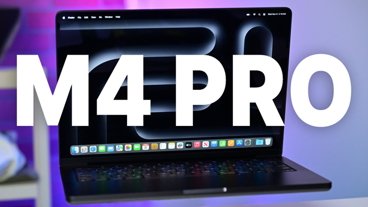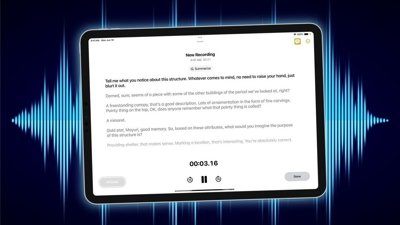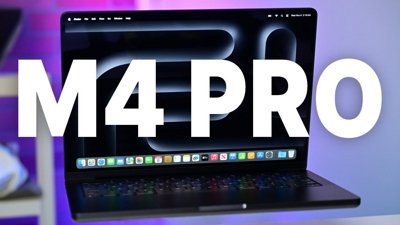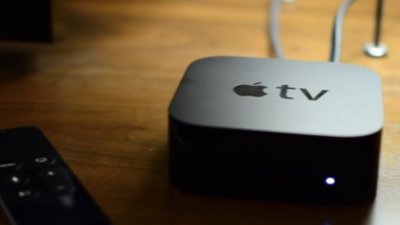A new interview with Apple chief Steve Jobs reveals some of the company's more extraordinary practices, including weekly reviews of the entire business. It also confirms Jobs' approach to a successor and the crucial role of the iPod in Apple's turnaround.
"When you hire really good people you have to give them a piece of the business and let them run with it," he says. "I want [them] making as good or better decisions than I would. So the way to do that is to have them know everything, not just in their part of the business, but in every part of the business."
The technique explains Jobs' confidence in finding a replacement should he ever leave. Echoing his remarks made on Tuesday at the annual shareholders' meeting, Jobs observes that there are multiple prime candidates for the top spot, particularly chief operating officer Tim Cook. Senior officials at Apple are reportedly skilled enough that there would be little risk. "Some people say, 'Oh, God, if [he] got run over by a bus, Apple would be in trouble," Jobs adds jokingly. "But there are really capable people at Apple."
He also uses this approach as justification for his at times legendary reputation for harsh criticism. Pushing employees to their limits improves them beyond what they thought possible of themselves, he says.
The executive takes further pride in the company's ability to say "no" to common business tactics. Consulants have never been brought in to verify the company's own behavior, just those of competitors. Apple has likewise repeatedly turned down some ideas, even seemingly viable ones, for the sake of maintaining its concentration on just a few key product lines.
Of those lines, the iPod may well have proved the most critical. While the Mac has always been the company's backbone, Jobs admits that the iPod proved virtually essential to rescuing the company from its reputation as a niche-only computer manufacturer. The runaway success of the music player helped validate the company's approach, both to itself and to others. Inside the company, the iPod was a "great shot in the arm" to a company used to never picking up more than 5 percent marketshare.
More importantly, he states, it broke the complacence of the market towards options beyond Windows. As people became aware of Apple once again, it gave the company an opportunity to expand and set itself up as a viable competitor to Microsoft and Windows-based PC builders.
"People have finally started to realize that they don't have to put up with Windows - that there is an alternative," he explains. "I think nobody really thought about it that way before."
 Katie Marsal
Katie Marsal






-m.jpg)






 Charles Martin
Charles Martin
 Wesley Hilliard
Wesley Hilliard
 Amber Neely
Amber Neely
 Christine McKee
Christine McKee
 Marko Zivkovic
Marko Zivkovic
 Malcolm Owen
Malcolm Owen
 Oliver Haslam
Oliver Haslam







38 Comments
"And we only have about 600 movies so far ingested on iTunes, but we'll have thousands later this year."
Let's hope so.
Well if you ask me (you know you did) it looks like Apple is getting some very good press. Frankly they have at least a few practices that the rest of corporate American could learn a bit from. Especially the corporate wide meetings on a weekly basis.
In some ways I do like the fact that Apple keeps its product lines focused. It is good for Apple and I actually think reduces waste. However I'm also frustrated that Apple seems to ignore consumer demand which I believe is hurting them considerably.
By this I mean such things as FM radio in the iPods, a serious effort at Newton 2, a serious run at a consumer grade expandable desktop Mac and other long running wants and needs. In some cases the exclusion of features seems like an attempt to simply irritate their customers.
One example is the reference to FM radio above which can be had for an extremely low price as some networking chips have the feature built in. So we are not talking about a huge increase in cost to offer the consumer a bit of extra capacity. Even something like AIR could have leveraged an FM Radio. Same thing goes for a low cost expandable Mac. I'm not knocking the Mac Pro as it is really just the nuts for certain segments of society, but likewise there is a similar segment that needs a lower cost expandable platform. I look at the MINI as an example of abandon ware from Apple, a good idea in many ways that has simply failed to keep up with technology.
So in a nut shell while it is good to see these positive stories coming out, I do wish that the press would fire something other than soft balls at Apple over their product development practices. Even a simply inquiry about why the MINI doesn't get any respect from Apple would at the very least stimulate a bit of thought at Apple.
Dave
By this I mean such things as FM radio in the iPods, [...] In some cases the exclusion of features seems like an attempt to simply irritate their customers.
Or more rather an attempt at increasing their margins:
'You want an FM radio in your iPod? Just buy these special headphones with a built-in remote, and your iPod will have an FM radio built-in.'
(May I ask you native speakers about the correctness of 'an FM radio' vs. 'a FM radio?)
It's pronounced 'eff emm' radio, so 'an' would be appropriate.
Or more rather an attempt at increasing their margins:
'You want an FM radio in your iPod? Just buy these special headphones with a built-in remote, and your iPod will have an FM radio built-in.'
(May I ask you native speakers about the correctness of 'an FM radio' vs. 'a FM radio?)
spoken as "an EFF EMM Radio" so an rather than "a EFF EMM radio"
an being used in front of vowel sounds and I'm an english speaker,
so don't none of yoos go conterrdcikting me!